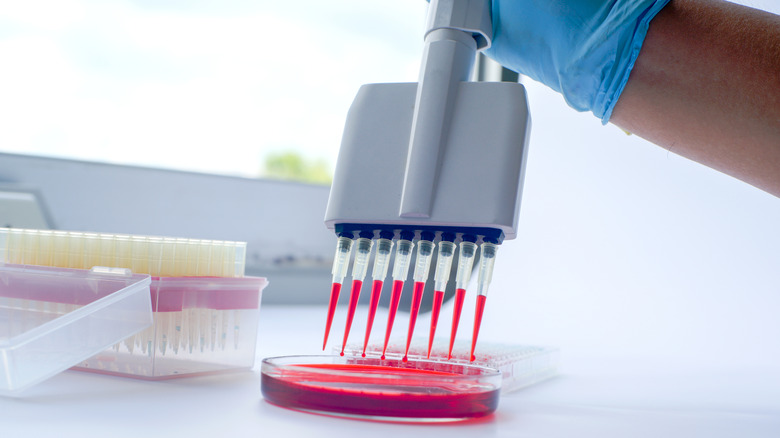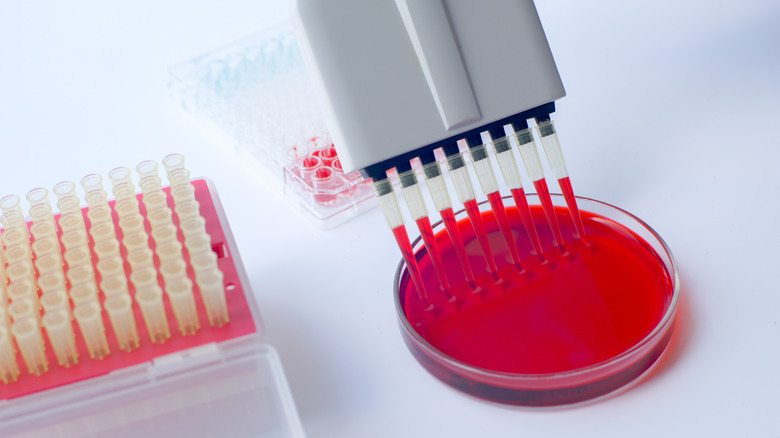Three Blood Tests That Can Track Your Longevity
According to the World Health Organization, as of 2019, the average global life expectancy is 73.4 years. This is a six-year increase from the 66.8 years recorded in 2000. No doubt, longevity is on the wishlist of many of us. While no one has the power to determine when they live or die, certain characteristics of your body are crucial when testing for various diseases. These are known as biomarkers (via U.S. Food & Drug Administration).
The American Federation For Aging Research notes that there are no real biomarkers of aging, but a potential one is senescence. This is when damaged cells in the body no longer reproduce, although they remain alive.
Blood tests have been a mainstay of preventive health, and health experts can use blood tests to track your physical health (via Healthline). Here are three key blood tests you should keep tabs on if you want to track your longevity.
Don't ignore these types of blood tests
A hemoglobin A1C (HbA1C) test measures your average levels of blood sugar over a two- to three-month period (via WebMD). Excessively high glucose values cause increased HbA1C values in the blood. This test is particularly crucial for those with diabetes and can help others identify prediabetic symptoms before they become serious. Regular testing can ensure blood sugar levels are within the ideal range, per WebMD.
Some fats ingested with food bind to proteins in the blood and form lipoproteins. According to MedicalNewsToday, this group also includes low-density lipoprotein (LDL) cholesterol. An increased lipoprotein level is associated with an increased cardiovascular risk. Apolipoprotein B-100 and Lipoprotein tests can assess these levels.
A 2008 study published by the National Center for Biotechnology Information also noted the link between lipoprotein and atherosclerosis. This condition causes the build-up of plaque in the arteries, which may result in strokes and heart attacks. Infiltration of ApoB molecules containing lipoproteins sparked an inflammatory response, promoting the development of atherosclerosis.
Alzheimer's disease, a form of dementia, is a progressive, neurodegenerative disease with a risk that increases with age. According to the Mayo Clinic, genetics is one risk factor associated with this disease, and testing for the APOE4 gene can reveal your susceptibility to Alzheimer's. Up to 25% of the general population carry the gene, making it hard to ignore, per the Mayo Clinic.
The importance of blood tests
Diagnostic blood tests help make more informed medical decisions. Once in the laboratory, the blood is broken down into its individual components using analytical equipment. After blood tests are carried out, different laboratory values (blood values) are determined and analyzed. In most cases, your doctor will be the first to receive the results.
The process of sampling blood and receiving accurate results from a doctor can be daunting for many. However, regular blood tests can be an effective way for doctors to keep track of your overall health, per Healthline. For this reason, it's crucial not to wait — blood tests can help monitor your overall wellbeing as you continue to age.
Generally speaking, your doctor will recommend which blood test you should take and how often. To be safe, you can note these three types and discuss your potential options with your doctor if needed.



